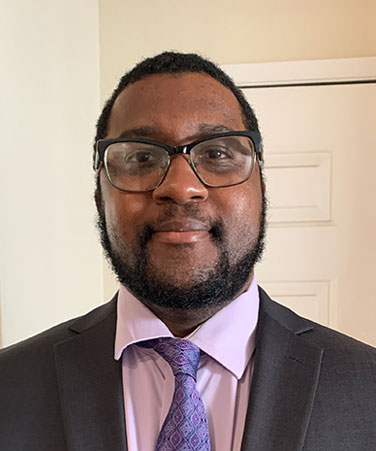Publications
Professor Cameron Black, who joined the CUNY School of Labor and Urban Studies as an Assistant Professor of Labor Studies in Fall of 2023, is a historian of the United States and his fields of interests are in Nineteenth and Twentieth century Labor and Cultural history, Student-Athlete Protest in the 1960s, and the History of Capitalism. He studies the intersections of race, class and labor, and in particular, how we think about who qualifies as labor and what processes go into these distinctions.His dissertation, “From the Line of Scrimmage to the Picket Line: Student-Athlete Protest in an Age of Protest, 1968-1972,” focuses around student-athlete protest movements in the late 1960s and early 1970s and analyzes how student-athletes were conceptualized, managed and disciplined like labor from the early twentieth century instead of like students. He interweaves questions of race, labor, and culture to look at how labor resists the encroachment of management within their personal and professional lives, and how management and corporations handle these resistance efforts.
His published work looks at enslaved watchmen in the Atlantic World during the late 18th and early nineteenth centuries, and how they simultaneously helped structure the boundaries of enslavement that plantation owners used to manage their plantations provided an avenue for resistance efforts by enslaved persons. For planters, these watchmen were necessary for managing a plantation, yet were also powerful louses for resistance. He also analyzed the development of the National Basketball League from 1970-2000, and argues that the NBA’s growth stemmed from new collective bargaining agreements put in place during the 1980s to implement a workplace culture that fit within the broader conservative backlash during the decade. This not only raised revenue but assimilated its growing population of African American players to traditional workplace norms that simultaneously attempted to counter racist stereotypes about their “natural” talents and legitimized ideas that Black players needed to be carefully managed.
As a graduate student in the History Department at the University of California-Berkeley, he received fellowships from the American Historical Association, the Institute for Research on Labor and Employment, and the Bancroft Library.
Recent News
- Black, Cameron, From the Line of Scrimmage to the Picket Line: Student-Athlete Protest in an Age of Protest, 1968-1972, (under contract with the John Hope Franklin Series in African American History and Culture at the University of North Carolina Press, Full Manuscript submitted, revisions pending December 2025)
- Black, Cameron. “A Game with Rules, But No Regulations: College Athletics, NIL And Labor Rights In The Twenty-First Century,” New Labor Forum, P. 1-13, Forthcoming, October, 2025.
- Black, Cameron. “How Student-Athlete Activism Shaped the University.” University of California-Berkeley History Social Science Matrix (September 2023), 1-20.
- Black, Cameron. “A Managerial Fast Break: Race, Workplace Discipline, and Collective Bargaining Agreements in the National Basketball Association 1970-1990.” History of the Present 12. No.2 (October 2022), 1-34.
- Rosenthal, Caitlin and Black, Cameron. “Enslaved Watchmen: Surveillance and Sousveillance in Jamaica and the British Atlantic World.” In Surveillance Capitalism in America, edited by Josh Lauer and Kenneth Lipartito, 27-45. Philadelphia: University of Pennsylvania Press, 2021.
Research Awards and Grants
- Faculty Fellowship Publication Fellow at City College of New York, 2025-2026
- Distinguished Service Award, Brooklyn County Supreme Court, 2025
- Black, Race and Ethnic Studies Initiative Seed Grant Award at City College of New York, 2024
- Inequality in America Initiative Postdoctoral Fellow at Harvard University, (Declined) 2023
- Fred J Martin American Political History Prize at the University of California-Berkeley, 2023
- Institute for Research on Labor and Employment Dissertation Fellowship at the University of California-Berkeley, 2022
- Bancroft Library Summer Study Award, 2022
- Marcus Foster Research Fellowship at the Marcus Foster Education Institute, 2020
- AHA Littleton-Griswold Research Grant for Research in US Legal History, 2020

